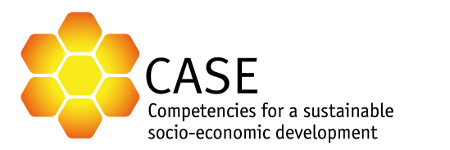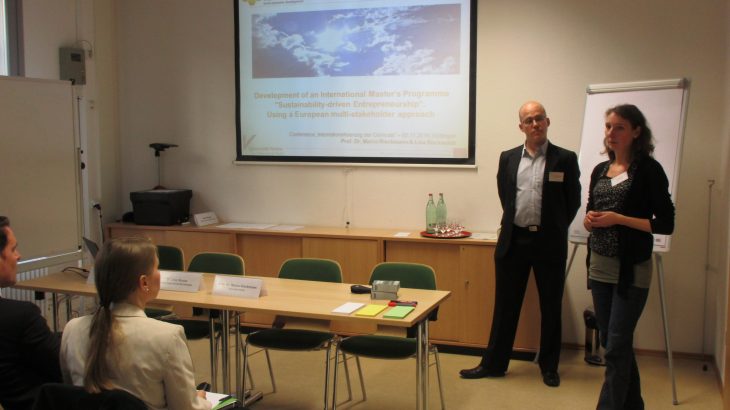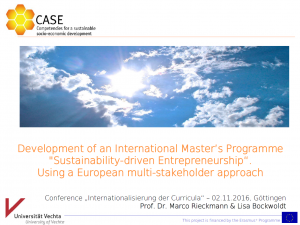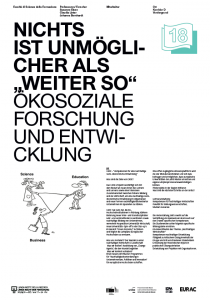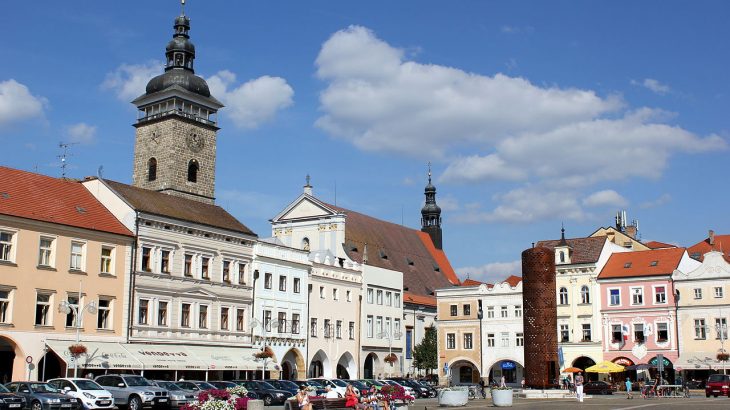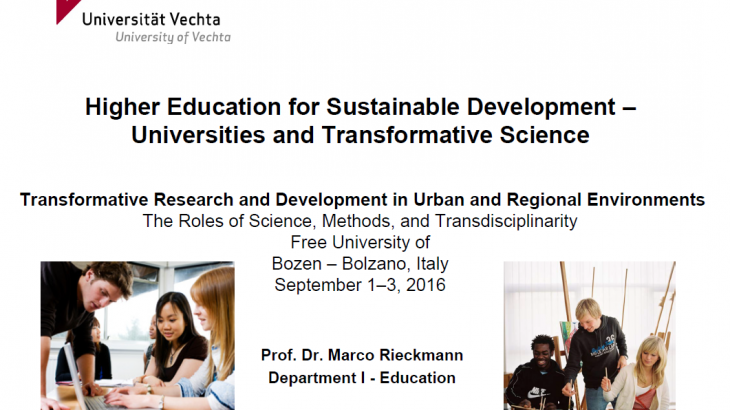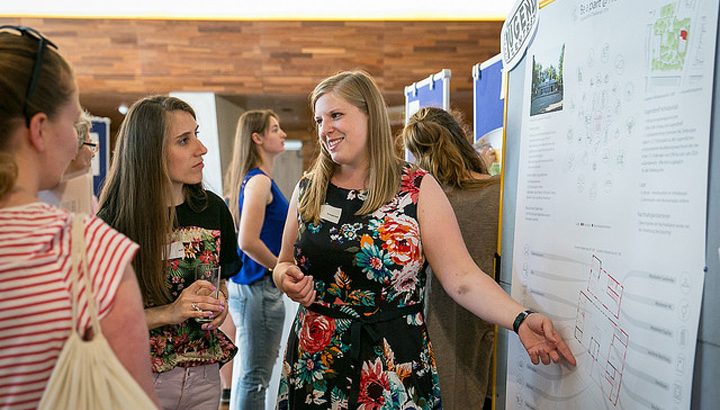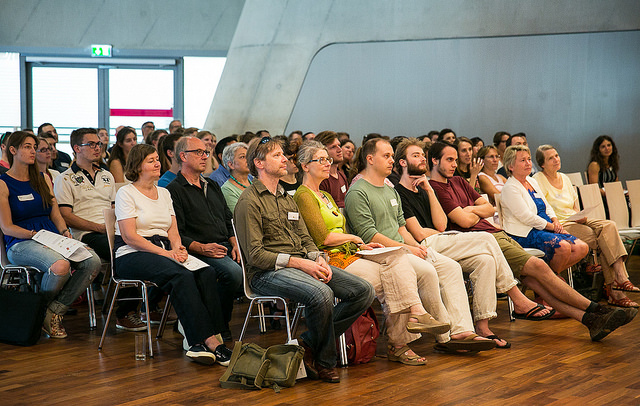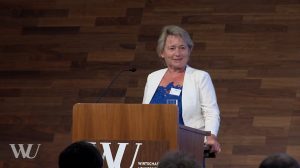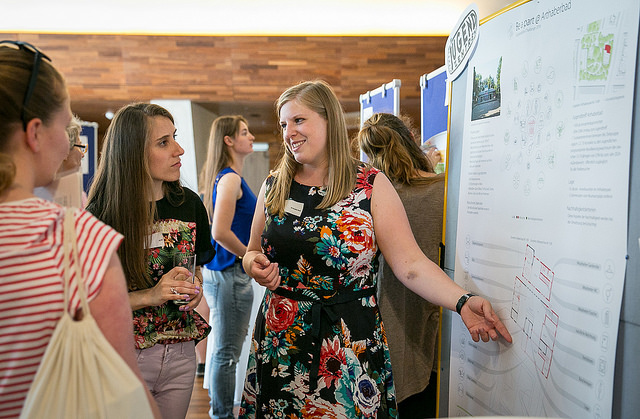Prof Dr Marco Rieckmann and Lisa Bockwoldt, CASE team members from the University of Vechta, Germany*, presented the European multi-stakeholder process of developing the CASE master program at the international conference “Internationalization of the Curricula” at the University of Göttingen, Germany.
They emphazised the importance of a strong knowledge alliance with diverse stakeholders: multidisciplinary students, teachers, researchers, university staff, and praxis partners from sustainability-driven enterprises, NGOs, and the public sector.
The collaboration is not only important for the successful development of a master program in which students learn to tackle challenges for sustainable development. But the alliance is also important for the actual teaching and learning in the master program.
In diverse cooperation formats (see the CASE pilot projects), students can learn in transdisciplinary settings and learn to solve real-life problems together with the partners.
Among the conference contributions, the CASE approach to jointly develop a master program with different European partners from universities and businesses was quite unique and innovative.
* Both on the picture above (photo by Magnus Frampton, University of Vechta).
